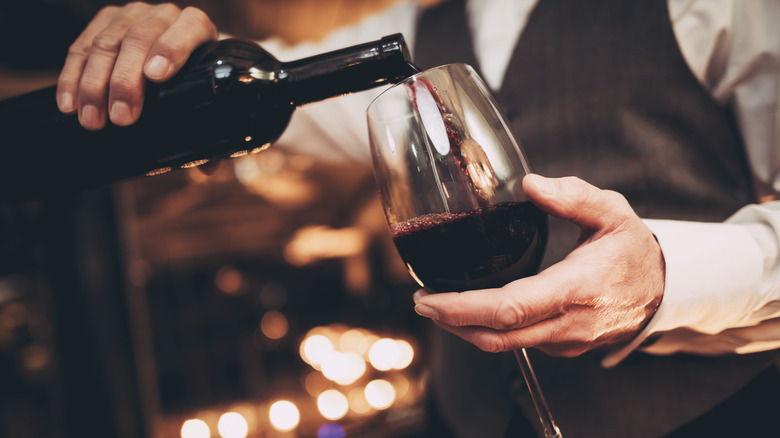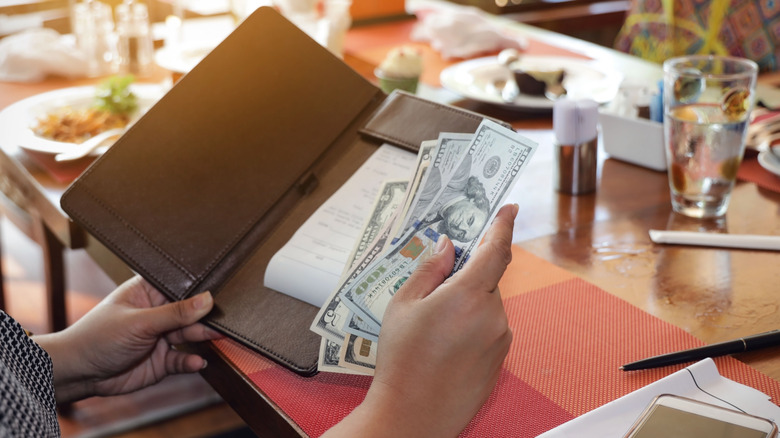What, Exactly, Is A Corkage Fee?
Many of us love a delicious glass of wine or a nice, cold beer with dinner, especially when eating out or celebrating a special occasion. Luckily, BYOB ("bring your own bottle") policies often make this possible, even at restaurants that don't serve alcohol or have a liquor license. Likewise, they can allow you to enjoy a special type of drink or bottle you've been looking forward to. But those who choose to pair their meal with a bottle of wine or beer brought from elsewhere may find themselves paying the restaurant for the privilege in the form of a corkage fee.
In the simplest terms, a corkage fee is any amount a restaurant charges to permit diners to enjoy outside alcohol at their table. In theory, this helps cover some of the restaurant's costs related to this service, such as uncorking the bottle (hence the name), providing and cleaning glassware, refilling drinks, and chilling the bottle, if necessary.
In most cases, the corkage fee is between $10 and $40, an often modest expense compared to the overall meal and the amount corresponding drinks would have cost. However, it can be significantly more at high-end establishments, so ask before making your BYOB plans.
The darker side of corkage fees
Unfortunately, corkage fees also land on the list of sneaky ways restaurants are scamming you. In some cases, they can serve as nothing more than an additional revenue stream to compensate for money diners didn't spend on high-margin drinks, particularly when put in place by eateries that also serve wine and other alcohol. The corkage costs can sometimes act as a deterrent, encouraging diners to simply leave the bottle at home and buy drinks at the restaurant.
When is it appropriate to bring your own wine to a restaurant? According to sommelier Whitney Adams, you generally shouldn't hesitate if it's a high-end or sentimental bottle (for example, one you've been saving for a celebration or special occasion), and you check in advance about a corkage fee. However, bringing lower-quality bottles to save money can be seen as tacky, particularly if the restaurant has a great wine list of its own. In addition, less expensive bottles can have their effective price significantly increased by corkage fees, even modest ones. Consider all these factors carefully, along with any local laws and rules about BYOB, before bringing that bottle out and spending your cash on corkage fees.

